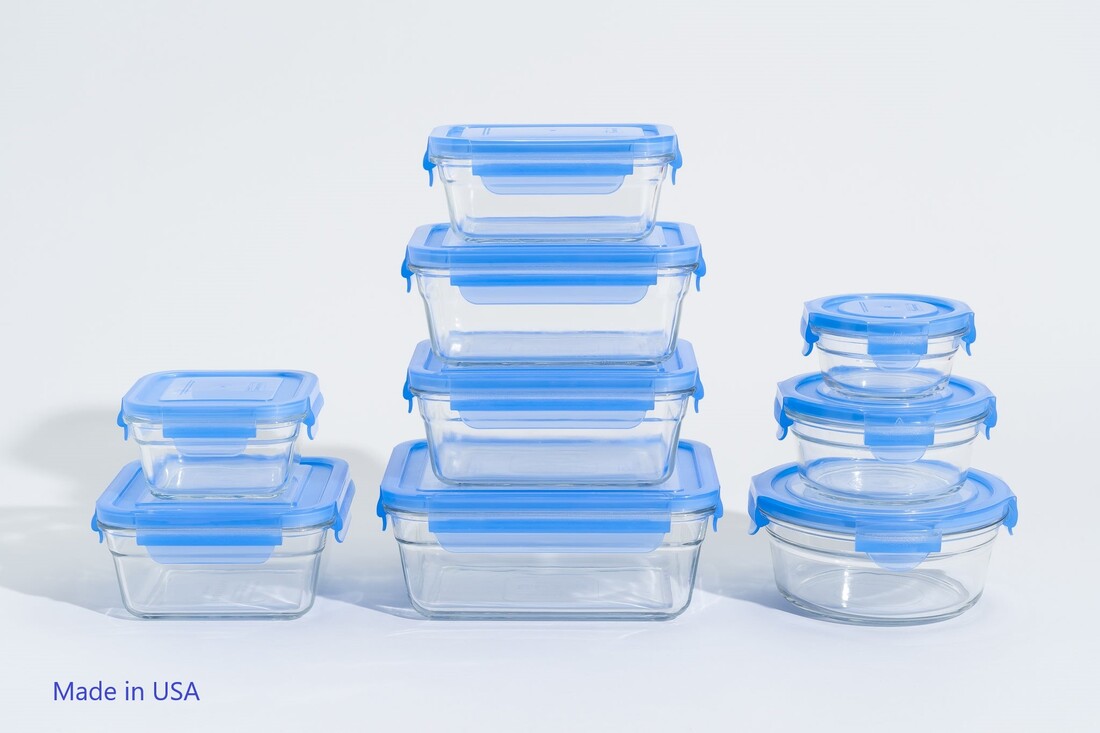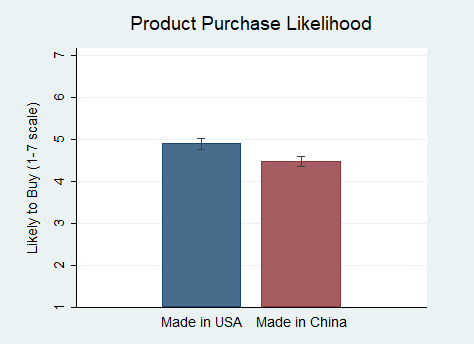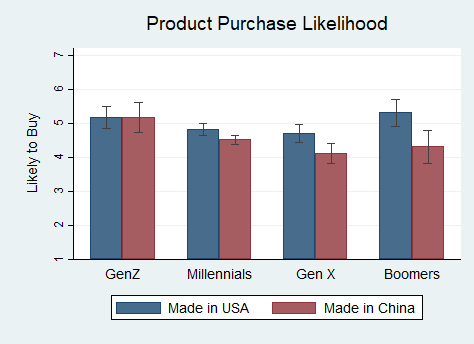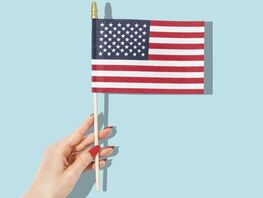Overview
Over 25% of goods in the world are manufactured by China (Statista 2021; United Nations 2019). This may come as no surprise given the substantially lower costs of producing goods in China. But concerns about product quality and livable wages have led some to voice disapproval, advocating for more goods made in the U.S.
But is this a concern of a small group of consumers, or a broader movement across America? Would American consumers actually consider not buying a product if they knew it was made in China?
The Experiment
We conducted an experiment with 400 people on Amazon Mechanical Turk. Participants were told “Below is a glass tupperware set that costs $19.99. It is made in [the United States / China].” Participants were then shown one of the two photos below, the same tupperware set but with either “Made in USA” or “Made in China” in the bottom-left corner (randomly assigned):
Over 25% of goods in the world are manufactured by China (Statista 2021; United Nations 2019). This may come as no surprise given the substantially lower costs of producing goods in China. But concerns about product quality and livable wages have led some to voice disapproval, advocating for more goods made in the U.S.
But is this a concern of a small group of consumers, or a broader movement across America? Would American consumers actually consider not buying a product if they knew it was made in China?
The Experiment
We conducted an experiment with 400 people on Amazon Mechanical Turk. Participants were told “Below is a glass tupperware set that costs $19.99. It is made in [the United States / China].” Participants were then shown one of the two photos below, the same tupperware set but with either “Made in USA” or “Made in China” in the bottom-left corner (randomly assigned):
Participants were then asked, "How likely would you be to buy this tupperware set?” on a 1-7 scale (1 = Not at all, 7 = Extremely).
Results
We found a small but significant difference in purchase likelihood (p = 0.014). Participants were less likely to purchase the tupperware set when it was made in China (avg. = 4.48) than when it was made in the USA (avg. = 4.91). This difference was small, however, about a quarter of a standard deviation. Other factors may have influenced participants’ likely purchase ratings. For example, politics or age may affect people’s tendency to care or not care about a product’s country of origin.
We ran two exploratory tests to see if political beliefs or age made a difference in the results. There was no such effect for political beliefs (p = 0.28). However, we did notice a small, marginally significant effect of age (coefficient p = 0.089, F-test p = 0.022). Older people were less likely to buy a product made in China, whereas younger people didn’t really care. Each additional year of age was associated with a -0.028 lower likely-to-buy rating of the Made in China product. For example, we’d expect a 20-year-old’s likely to buy rating to be 4.80 for USA and 4.77 for China (a difference of 0.03 on a 1-7 scale), but a 60-year-old’s likely to buy rating would be 5.04 for USA and only 3.90 for China (a difference of 1.14 on a 1-7 scale).
Conclusion
Overall, the results suggest that there might be a small bias against products made in China, and that bias may be more pronounced in older buyers. But it’s also possible that older buyers are just more patriotic—they may not be biased against China, but rather they may prefer products made in the USA. So we designed a second experiment to test this very hypothesis. Here are the results.
Methods Note
We used ordinary least squares (OLS) regression analyses to test for significant differences in satisfaction between the performance metric conditions. For significant differences, the difference between the two groups' averages would be large and its corresponding “p-value” would be small. If the p-value is less than 0.05, we consider the difference statistically significant, meaning we'd likely find a similar effect if we ran the study again with this population.
Methods Note
We used ordinary least squares (OLS) regression analyses to test for significant differences in satisfaction between the performance metric conditions. For significant differences, the difference between the two groups' averages would be large and its corresponding “p-value” would be small. If the p-value is less than 0.05, we consider the difference statistically significant, meaning we'd likely find a similar effect if we ran the study again with this population.
Popular Experiments
COVID MasksDoes wearing a COVID mask affect how others think of you?
|
Video GamesAre video games more enjoyable than board games?
Does age or gender matter? |
Zero-Sum PoliticsDo Democrats or Republicans view society as win-lose?
|







